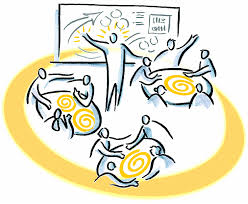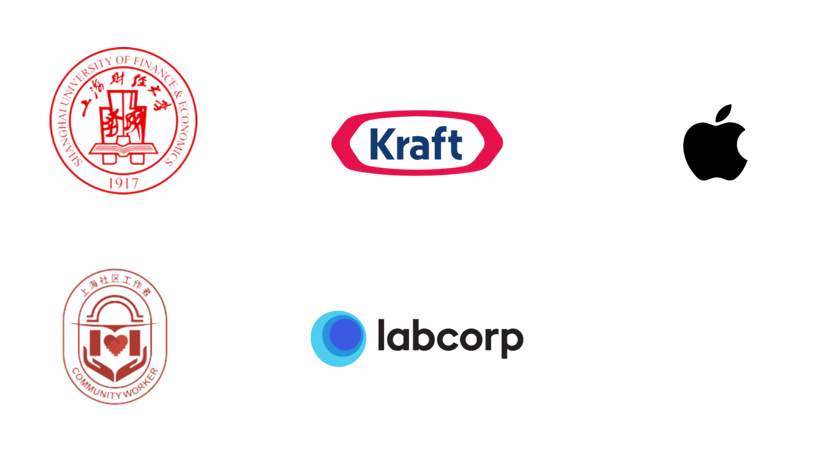
Why do you need a workshop?
· The external world is turbulent, and competition within organisations is fierce.
· College students’ lives are turbulent, and college graduation means unemployment.
· People of all ages are not proud of their work and find their workplaces boring;
· As a paratrooper, in the new unit everywhere frustrated, cannot well integrate into the team.
· When an organization experiences transformation, teams may not be able to reach a satisfactory consensus.
· Whatever the reason, you find it difficult to improve your performance.
......
In the Uka era, if you are facing the above problems, you may wish to make an appointment for our workshop. Our fun, practical workshops combine team coaching and facilitation techniques, allowing you to reap the rewards of a collective clash of wisdom.
What are our workshop themes?
Our workshops are custom-made and tailored to your needs. They centre around individual and organizational transformation. We offer the following workshop topics and more:
• Leader as Coach for Managers
• Career Planning
• Strategic Consensus (Facilitate)
• Sales Performance Improvement
• Problem Solving
• Meeting Efficiency
• Team Assimilation
• Top Management
• Team Management
• Time Management
• Energy Management
• Cross-functional Development's Cooperation
• ........
How do our workshops work?

How long does it take?
Depending on the theme, a workshop can be a half day long, a day long, two days long or longer.
How much does a workshop cost?
Prices vary based on the workshop’s theme, target, number of participants, length and other requirements. If you are interested in a workshop, please contact me HERE

What is a workshop?
The term ‘workshop’ first appeared in the fields of education and psychology. At the beginning of the 20th century, a Bostonian doctor named Pratt gathered tuberculosis patients together. He asked them to share things they did to deal with their disease and things that made them happy. As a result, patients not only became more confident in their ability to overcome the disease, but they also experienced an unexpected improvement to their symptoms. This effect was gradually accepted and developed by medical and psychological circles. Later, psychological workshops ceased to exist as a ‘curing’ method, and their uses became increasingly extensive.
In the 1960s, the famous American landscape architect Lawrence Harplin cited the ‘workshop’ concept as a way to encourage participation and innovation and to find solutions, and he asserted that workshops enable people from different positions and ethnic groups to develop ideas ideas and communicate with one another.
Attending workshops is an increasingly popular way to learn and to work towards self-improvement, and the majority of maker organizations use workshops to plan offline communication activities. Generally speaking, a workshop is centred on a speaker with experience in a certain field. Under the guidance of the speaker, about 10–20 participants learn about and discuss a topic through activities, short lectures and other methods.
Workshop features
Compared with traditional education methods, the workshop has some distinctive features:
• The topics discussed are often more targeted. In many cases, cutting-edge topics in related fields are involved, and many great ideas and theories are born out of discussions that take place in workshops.
• The time and location at which a workshop takes place is more flexible. For example, a workshop can take place in someone's home, in a formal meeting room or at a tourist attraction.
• The cost of a workshop is relatively low. Sometimes, a simple ‘AA system’ workshop only requires participants to pay for meals and venue-rental fees (domestic maker spaces often have either a membership system or a tiered fee model for a single event).
Classification Of Workshops
According to the form of operation, it can be divided into the operation and method of the workshop changes as different topics occur, but the basic mode and structure are essentially the same.
•Participants share information. The first step of holding a workshop is to share basic information. Through the process of sharing information and engaging in discussion, participants can discuss and exchange opinions from a peaceful standpoint and thus gain awareness of other participants’ points of view.
• The design of the group proposal. The second stage mainly involves group discussions so that participants can continue to discuss ideas with one another. Through the process of group discussion, participants can exchange opinions, stimulate their brains, and create together. Through the process of condensing consciousness, participants develop closer relationships, which facilitates the smooth progress of future activities.
•All people express their opinions. The final stage is the publication time of each group. The results of the joint discussions before the publication, communicate with other groups. Based on the different values and positions of each group, we use an objective perspective to analyse things and take this opportunity of communication and coordination to think about a suitable direction together and continue to extend to subsequent activities.
Part of Workshop Clients
